What the window frames of Russian houses tell about: symbolism in wooden architecture
Categories: Design and Architecture
By Pictolic https://pictolic.com/article/what-the-window-frames-of-russian-houses-tell-about-symbolism-in-wooden-architecture.htmlThere are still many houses in Russia today that are impressive with wooden patterns on the window frames. This fine art was passed from master to master, and to this day a rare house with carved platbands will leave someone indifferent. In our review, there are the most interesting examples of wooden architecture, which can be considered endlessly.
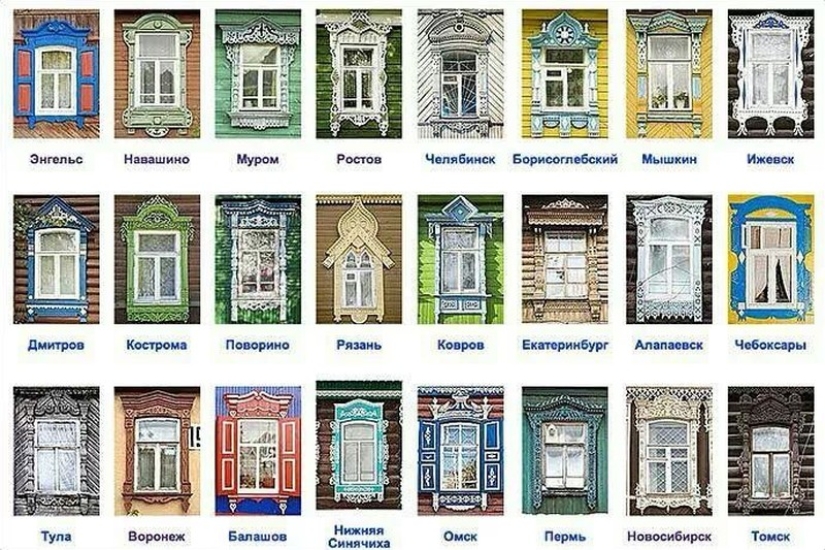
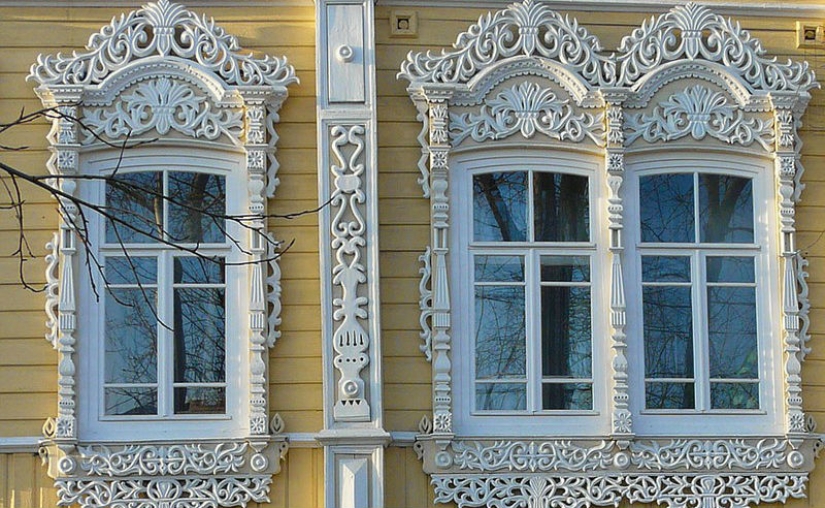
Such were the window frames until the 17th century.
Carved platbands in Russian houses have always been not only an aesthetic element, but also an amulet, which was designed to protect the house from the penetration of "darkness and evil"into it. Therefore, the main motif of the carving was the image of natural forces — "the firmament of heaven", "the clouds of heaven" and the Sun, there were also realistic images of animals.
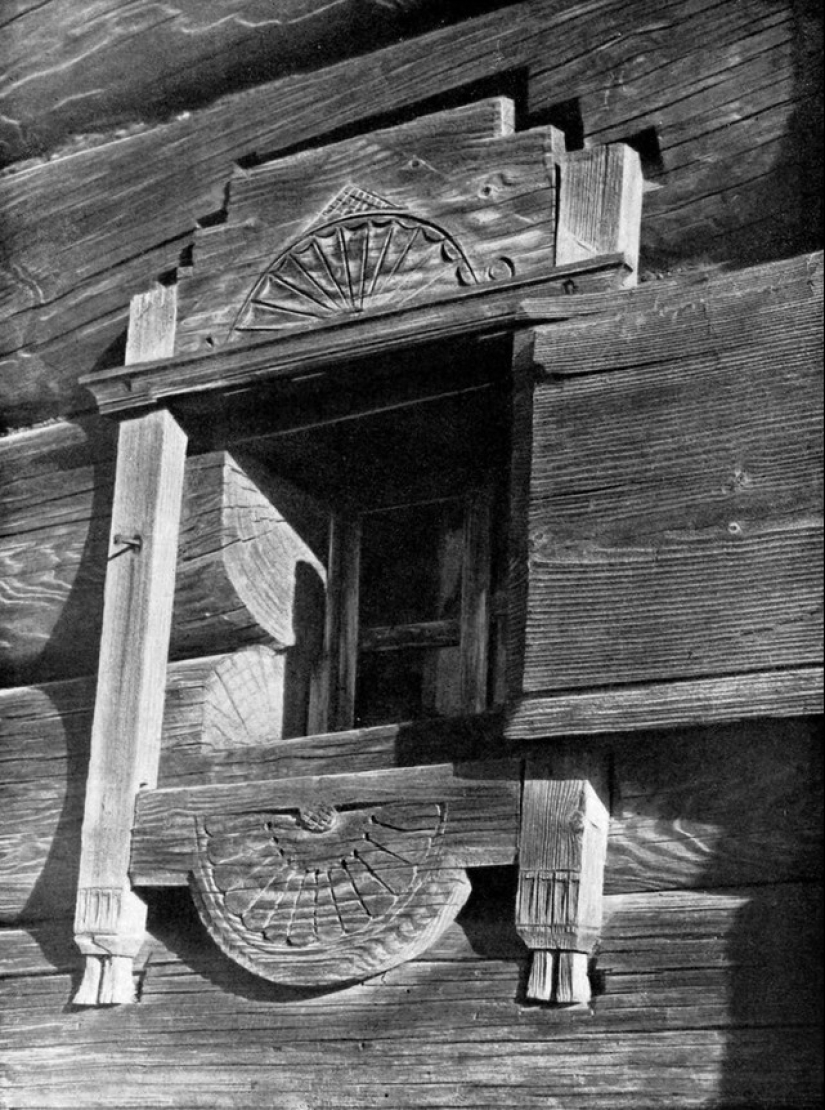
Complex carving on the window frames.
The design of the window of the house is a kind of picture of the world. In the upper part of the sky, which in Slavic beliefs was two-level: the "lower sky" was called "heavenly slabs", and the upper one was called "heavenly firmament". The heavenly slab-a symbol of fertility and life-giving moisture-is depicted as a wavy line or distinct semicircles. It could "flow" along the edges of the window, being depicted in the form of droplets.
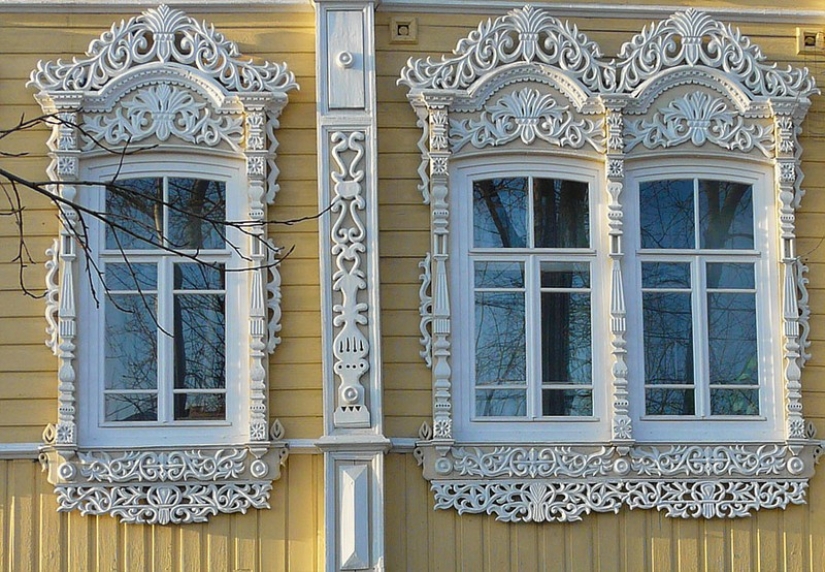
A special style.
The lower part of the wooden platband was supposed to symbolize the "firmament of the earth", and therefore often had images of a plowed and sown field (rhombuses with dots inside and double crossing stripes). The side parts of the platband were called "towels".

The sun sets and rises again.

The platband is like a talisman.
All parts of the platband correspond to the cardinal directions and the seasons, and when applying certain symbols to them, the location of the symbols themselves plays an important role.
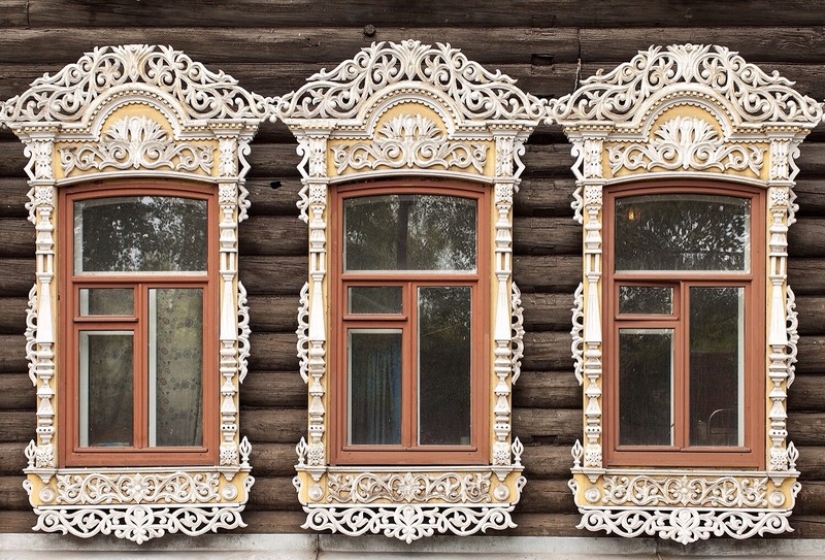
Modern style.
So, the most common is the placement of solar symbols on all parts of the platband. As a rule, a rhombus was used to depict the sun. It could be placed in any part of the platband, and sometimes immediately on top, on the right, on the left, and even at the bottom. In this combination, the symbol denoted the change of seasons and day and night. In the lower part of the platband, a rhombus (elongated) denoted the field.
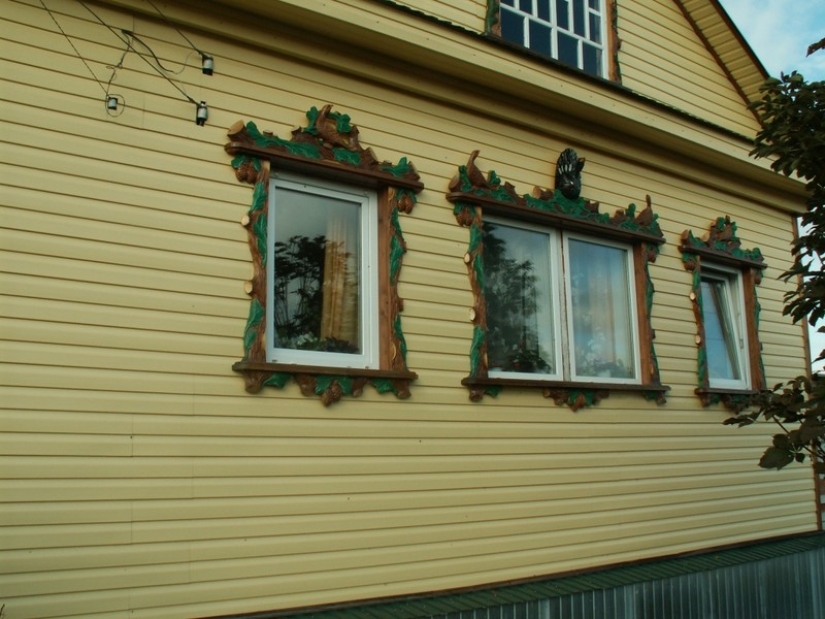
White and bordeaux.

Almost khokhloma.
The sun was depicted on the platbands both as an equilateral cross, the so-called "eye from the sky" (usually in the upper part of the platband), and as a small half-disk with rays. For the ancient Slavs, the sun was associated with energy, power, strength, was a talisman against all evil spirits. Such images also reflect the ideas of the Slavs about the world order — in the center is the sun, personifying the supreme power and giving life. However, in the Soviet-era platbands, the sun was replaced by a" flower " or a five-pointed star.
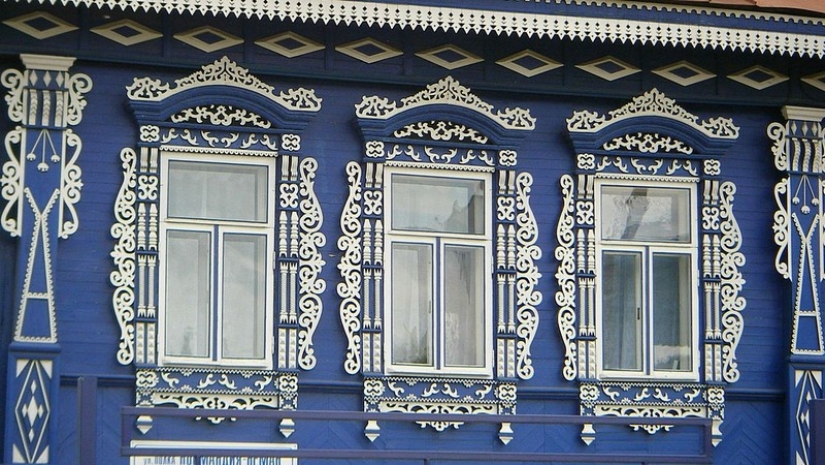
...and the birds below.
Thunder signs that traditionally accompany the sun are no less important in the decoration of platbands. The thunder sign looks like a six-or octagonal star inscribed in a circle. The Slavs called this symbol a thunder or Perun sign, a thunder wheel or a rotifer. This sign is a symbol of courage, valor and a magical sign of the Russian army. Sometimes it denoted the change of day and night.

Sophisticated.
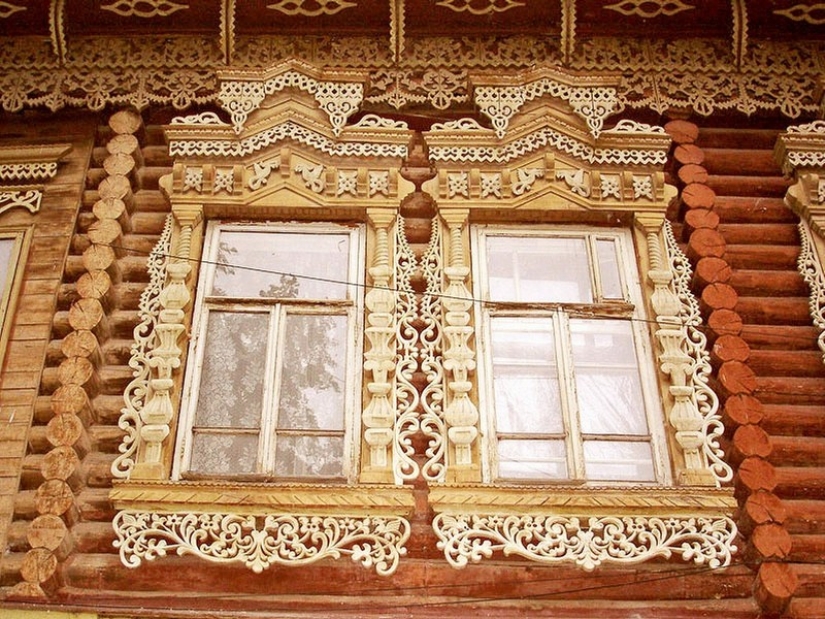
Modern motifs.
There are also realistic images of birds (ducks and swans) and horses on the platbands. In Slavic mythology, the horse was the "carrier" of the solar disk. Therefore, it was depicted in the upper part of the platband, and the birds that carried away the sun at sunset — in the lower part.
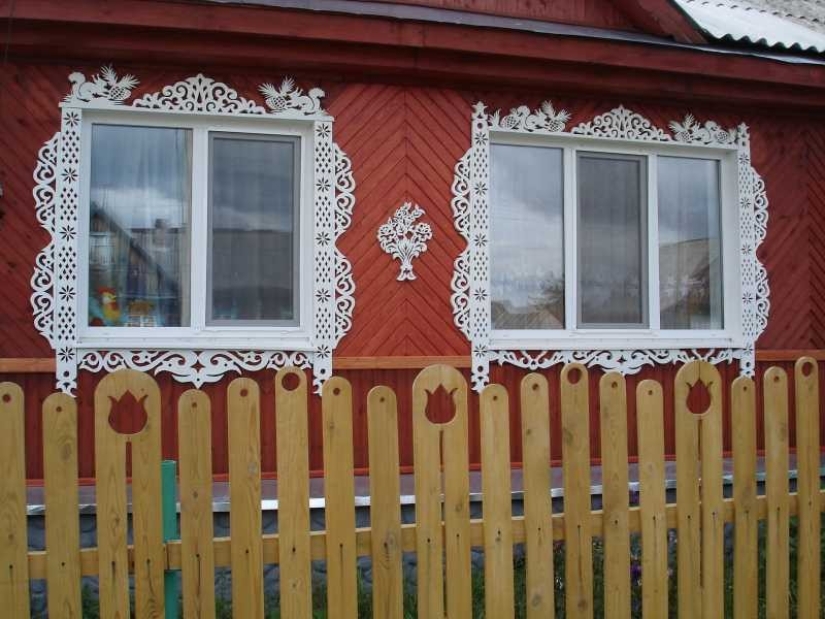
Almost a fabulous window.
Looking at the platbands, you can see a lot of interesting things, but you should always remember that the interpretations of images in different regions of Russia can be completely different — this is due to the history, the subsequent adoption of symbols and their adaptation to their own culture by different peoples.
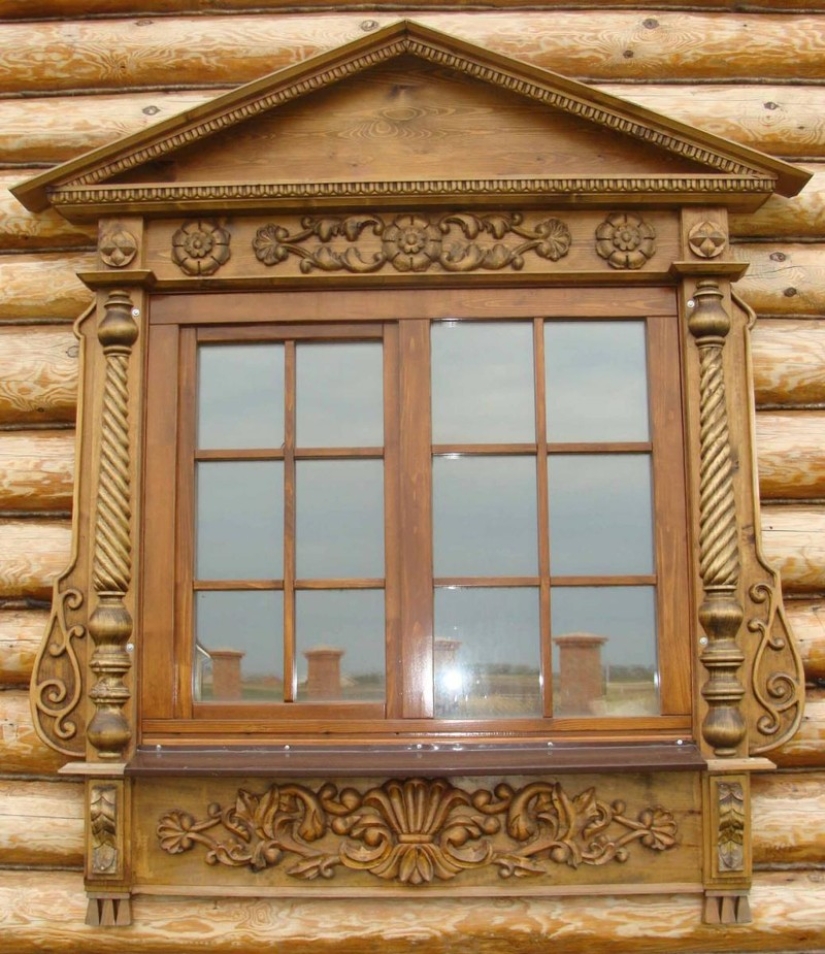
Keywords: Russian Federation | House | Design and architecture | Architecture
Post News ArticleRecent articles

It's high time to admit that this whole hipster idea has gone too far. The concept has become so popular that even restaurants have ...

There is a perception that people only use 10% of their brain potential. But the heroes of our review, apparently, found a way to ...
Related articles

A music album is not only a collection of tracks, but also an example of fine art. Each cover carries a certain meaning, and behind ...

Beloved by many, actor Mikhail Boyarsky has always been distinguished not only by his cheerful disposition and desperate, sometimes ...

Any journey is fraught with many discoveries and observations, of which over time can form a whole collection. Today you will see ...

New Year's is a time to surprise and delight loved ones not only with gifts but also with a unique presentation of the holiday ...